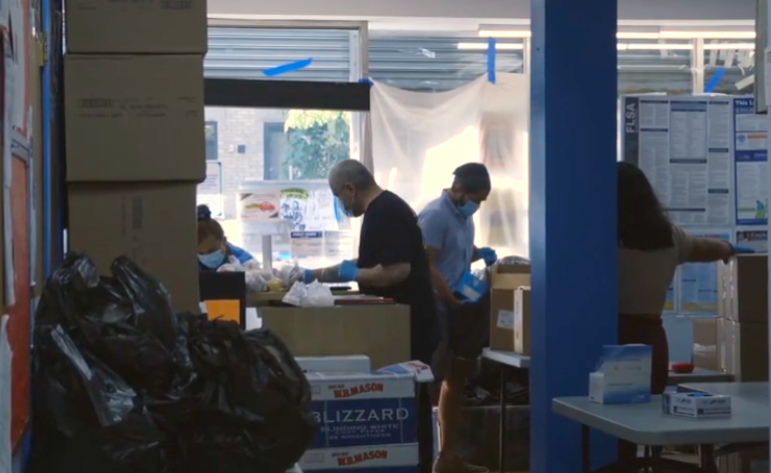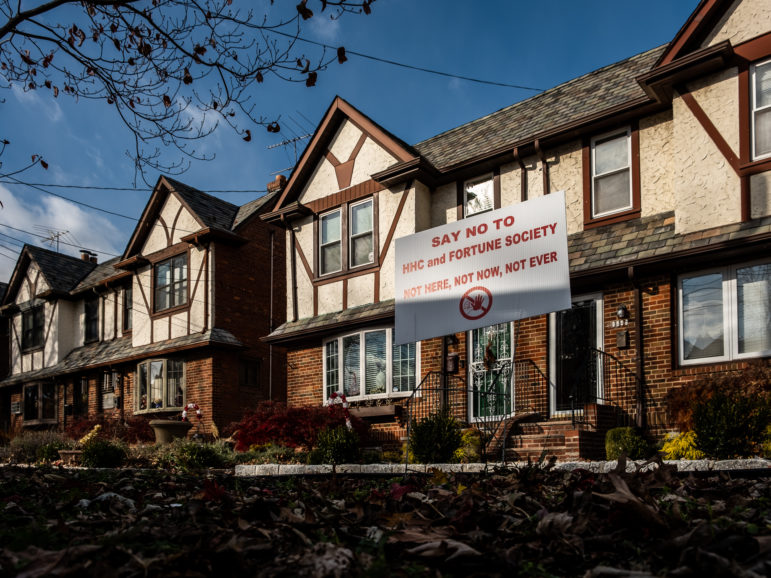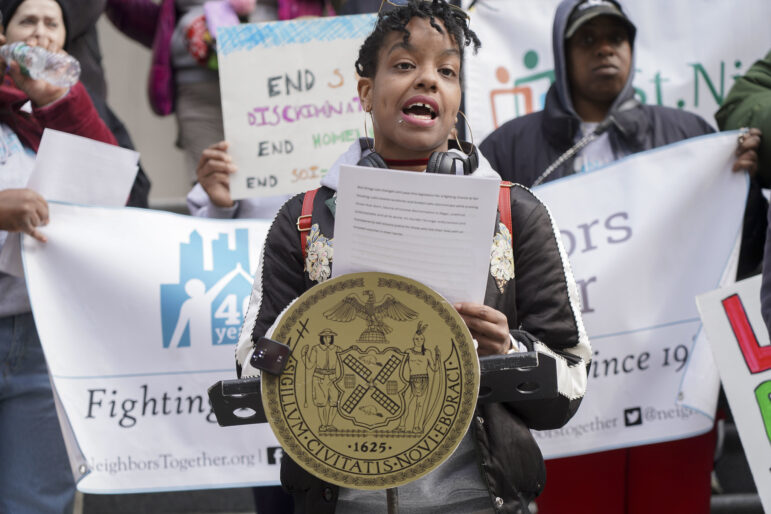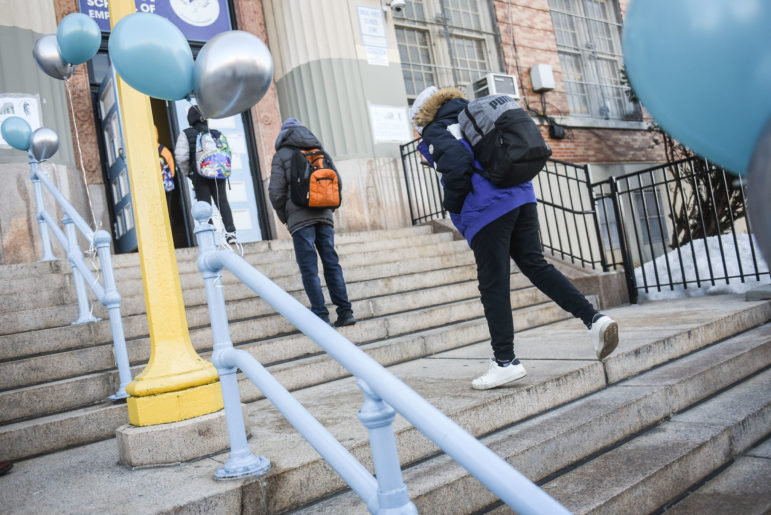A group of lawmakers and their advocacy allies are hoping to change that, with a law that creates a fund for excluded workers and pays for it with a tax on billionaires.

MTRNY
Inside Make the Road New York’s Brooklyn PantryThere are images from the COVID-19 pandemic that will be hard to forget, like refrigerated trucks parked outside hospital morgues, deserted streets in America’s largest city and lines stretching around the block from food distribution centers.
The last one will be easy to remember because it is likely to be a constant—maybe even more common—site as COVID’s economic impact hardens and deepens.
At the Bushwick office of the advocacy group Make the Road New York, food pantry patronage has swelled from roughly 200 families per week before the pandemic to more than 500 now. Families can use the pantry twice a month. According to a spokesperson for Make the Road New York, many of the clients are housekeepers, delivery workers, day laborers and construction workers. One thing many of the patrons have in common is their exclusion from the first federal relief packages and other, long-standing economic supports because of their immigration status.
The number of people in New York City receiving help from the Supplemental Nutrition Assistance Program (SNAP, formerly known as Food Stamps), grew by 144,000 between June 2019 and June 2020—a jump equal to the population of Syracuse. But only U.S. citizens and some legal non-citizen residents can get SNAP.
A group of lawmakers and their advocacy allies are hoping to change that, with a law that creates a fund for excluded workers and pays for it with a tax on billionaires. Research indicates that the very richest New Yorkers have seen their wealth swell during the pandemic.
The bill, S8277A, sponsored by Sen. Jessica Ramos, has 18 Senate co-sponsors. It would tax billionaires’ capital gains as income—including looking back at the last 10 years of gains for the first year’s hit—and put the funds into a worker bailout fund that would replace wages lost by people ineligible for earlier rounds of federal aid. Also eligible would be people released from jail, prison or immigration detention after last October 1, on the idea that they face barriers to finding work in the pandemic economy.
It’s unclear whether legislative leaders or Gov. Cuomo will take up the proposal; the bill has yet to have a hearing. Meanwhile, the Democratic proposal for a new round of stimulus (the HEROES Act) would make the undocumented eligible for some benefits.
In the meantime, Make the Road New York’s food operation—profiled in the video below—continues to try to plug the gap, as do many other pantries and kitchens around the city, as well as the city’s own GetFood program.
The stakes are high. Research released today from Ball State based on a decade-long study of 25,000 people found that those who dealt with long-term food insecurity faced a 75 percent elevated mortality rate from heart disease and cardiac conditions.
Some indicators suggest the demand for emergency food is slackening, though still significant: According to data from the Department of Sanitation, which is overseeing the effort, the city’s food delivery and grab-and-go services combined to provide more than 12.4 million meals the week of May 31 and about 6.8 million meals the week of August 2.








